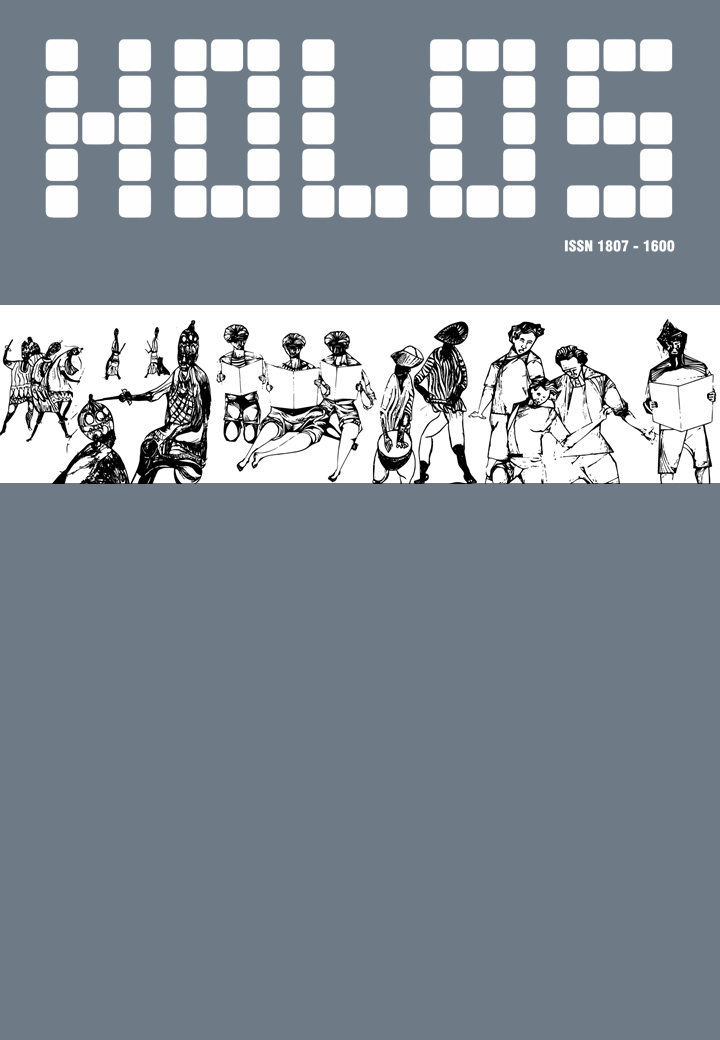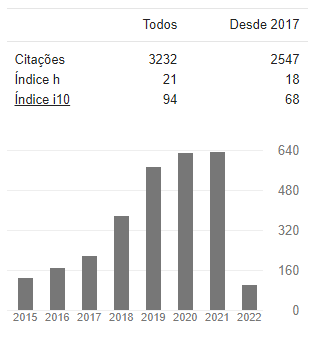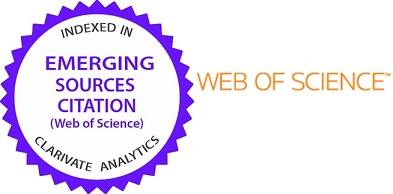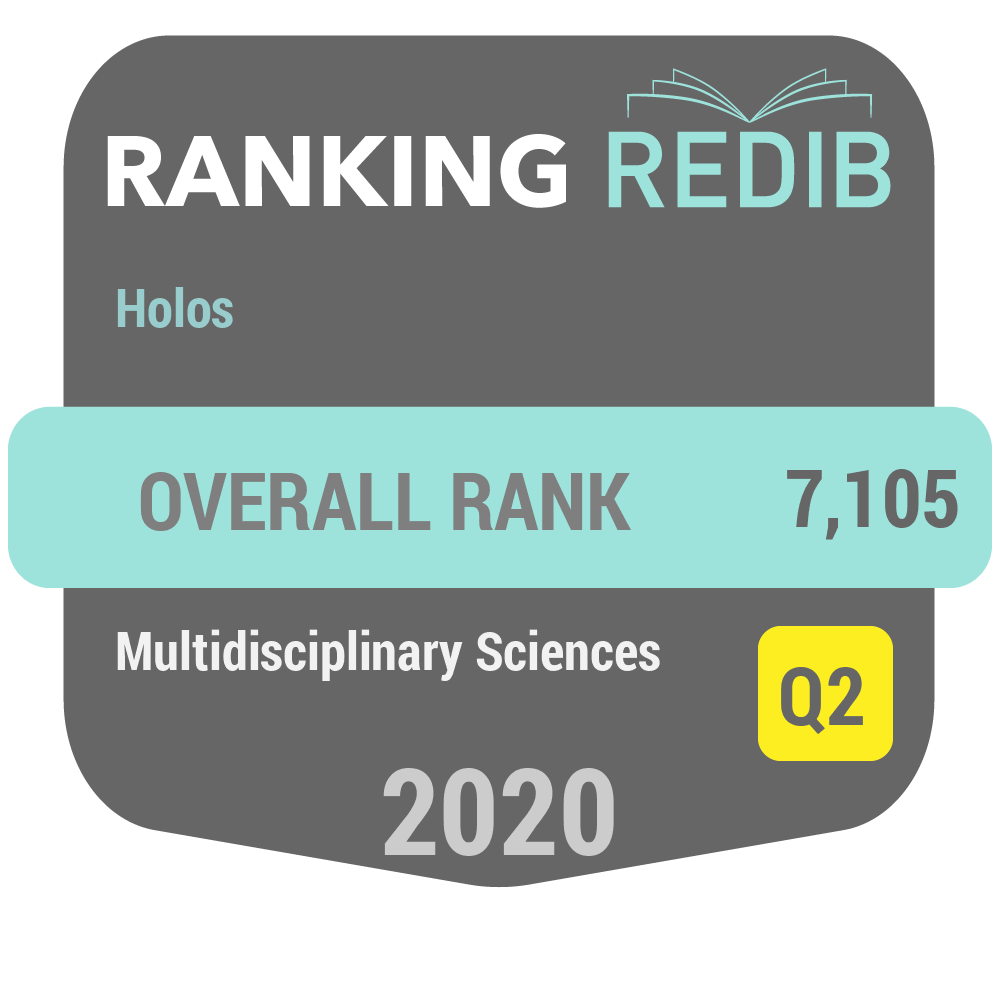THE INFLUENCE OF MINDFULNESS ON MEMORABLE TOURISM EXPERIENCES AND ITS CONSEQUENCES
DOI:
https://doi.org/10.15628/holos.2024.15331Palavras-chave:
memorable tourism experience., memorable trip., travel and personal transformations., mindfulness., structural equation model.Resumo
Este artigo analisa os efeitos mútuos de atenção plena e experiências turísticas memoráveis (MTE) e suas consequências. Adotamos uma abordagem inovadora em que a atenção plena é considerada um antecedente de MTE. Esta abordagem nos permite desenvolver e testar um modelo teórico usando a técnica de modelagem de equações estruturais. Esse modelo testa uma escala de MTE e seus consequentes, como transformações pessoais, bem-estar subjetivo, intenções comportamentais, apego ao lugar e memória. Um questionário sobre MTE nos últimos dois anos teve 1.187 respondentes. Os resultados indicam que a atenção plena impacta negativamente o MTE, embora a literatura tenha mostrado que a atenção plena e as experiências de viagem estão positivamente relacionadas. Também confirma que as MTEs provocam transformações pessoais para os turistas em termos de aprendizagem, habilidades e comportamentos. Gestores dispostos a promover experiências memoráveis devem proporcionar experiências inovadoras que possam evocar emoções e gerar transformações pessoais.
Downloads
Referências
Agapito, D., Valle, P., & Mendes, J. (2014). The sensory dimension of tourist experiences: Capturing meaningful sensory-informed themes in Southwest Portugal. Tourism Management, 42, 224–237.
Ali, F., Ryu, K., & Hussain, K. (2016). Influence of experiences on memories, satisfaction and behavioral intentions: A study of creative tourism. Journal of Travel and Tourism Marketing, 33(1), 85–100.
Anderson, L., Ostrom, A. L., Corus, C., Fisk, R. P., Gallan, A. S., Giraldo, M., Mende, M., Mulder, M., Rayburn, S. W., Rosenbaum, M. S., Shirahada, K., & Williams, J. D. (2013). Transformative service research: An agenda for the future. Journal of Business Research, 66(8), 1203–1210.
Aroeira, T., Dantas, A. C., & Gosling, M. (2016). Experiência turística memorável, percepção cognitiva, reputação e lealdade ao destino: Um modelo empírico. Revista Turismo Visão e Ação, 18(3), 584–610.
Babbie, E. R. (1990). Survey Research Methods. Wadsworth Pub. Co.
Ballantyne, R., Packer, J., & Falk, J. (2011). Visitors’ learning for environmental sustainability: Testing short- and long-term impacts of wildlife tourism experiences using structural equation. Tourism Management, 32(6), 1243–1252.
Barnes, S. J., Mattsson, J., & Sørensen, F. (2016). Remembered experiences and revisit intentions: A longitudinal study of safari park visitors. Tourism Management, 57, 286–294.
Barros, V. V., Kozasa, E. H., Souza, I. C. W., & Ronzani, T. M. (2015). Validity evidence of the Brazilian version of the mindful attention awareness scale (MAAS). Psicologia: Reflexão e Crítica, 28(1), 87–95.
Bosangit, C., Hibbert, S., & Mccabe, S. (2015). "If I was going to die, I should at least be having fun”: Travel blogs, meaning and tourist experience. Annals of Tourism Research, 55, 1–14.
Bosangit, C., & Demangeot, C. (2016). Exploring reflective learning during the extended consumption of life experiences. Journal of Business Research, 69(1), 208–215.
Brown, S. D., & Reavey, P. (2015). Turning around on experience: The “expanded view” of memory within psychology. Memory Studies, 8(2), 131–150.
Buzinde, C. N., Kalavar, J. M., & Melubo, K. (2014). Tourism and community well-being: The case of the Maasai in Tanzania. Annals of Tourism Research, 44(1), 20–35.
Chang, J. H., Huang, C. L., & Lin, Y. C. (2014). Mindfulness, basic psychological needs fulfillment, and well-being. Journal of Happiness Studies, 16(5), 1149–1162.
Chang, L., & Beise-Zee, R. (2013). Consumer perception of healthfulness and appraisal of health-promoting tourist destinations. Tourism Review, 68(1), 34–47.
Chen, C.-C., Huang, W.-J., & Petrick, J. F. (2016). Holiday recovery experiences, tourism satisfaction and life satisfaction: Is there a relationship? Tourism Management, 53, 140–147.
Chen, L. I. L., Scott, N., & Benckendorff, P. (2017). Mindful tourist experiences: A Buddhist perspective. Annals of Tourism Research, 64, 1–12.
Cifci I. (2021). Testing self-congruity theory in Bektashi faith destinations: The roles of memorable tourism experience and destination attachment. Journal of Vacation Marketing.
Coelho, M. de F. (2017). Viagens de Brasileiros: Um Modelo de Relações entre Experiência Turística Memorável, Mindfulness, Transformações Pessoais e Bem-Estar Subjetivo. Universidade Federal de Minas Gerais. PhD Thesis.
Coelho, M. F., & Gosling, M. S. (2018). Memorable tourism experience (MTE): A scale proposal and test. Tourism & Management Studies, 14(4), 15–24.
Coelho, M. F., Gosling, M. S., & Almeida, A. S. A. de. (2018). Tourism experiences: Core processes of memorable trips. Journal of Hospitality and Tourism Management, 37, 11–22.
Cornelisse, M. (2018). Understanding memorable tourism experiences: A case study. Research in Hospitality Management, 8(2), 93–99.
Dalgiç, A., & Birdir, K. (2020). Key success factors on loyalty of festival visitors: The mediating effect of festival experience and festival image. Tourism & Management Studies, 16(1), 28–38.
Davis, A. (2016). Experiential places or places of experience? Place identity and place attachment as mechanisms for creating festival environment. Tourism Management, 55, 49–61.
Dolnicar, S., Coltman, T., & Sharma, R. (2015). Do satisfied tourists really intend to come back? Three concerns with empirical studies of the link between satisfaction and behavioral intention. Journal of Travel Research, 54(2), 152–178.
Hair, J. F. (2010). Multivariate Data Analysis: A Global Perspective. Pearson Education.
Hanley, A., Warner, A., & Garland, E. L. (2015). Associations between mindfulness, psychological well-being, and subjective well-being with respect to contemplative practice. Journal of Happiness Studies, 16(6), 1423–1436.
Hosany, S., & Witham, M. (2010). Dimensions of cruisers’ experiences, satisfaction, and intention to recommend. Journal of Travel Research, 49(3), 351–364.
Huta, V., & Waterman, A. S. (2014). Eudaimonia and its distinction from hedonia: Developing a classification and terminology for understanding conceptual and operational definitions. Journal of Happiness Studies, 15(6), 1425–1456.
Kamenidou, I. (Eirini), & Stavrianea, A. (2021). Memorable tourism experiences, destination image, satisfaction, and loyalty: An empirical study of Santorini Island. EuroMed Journal of Business, (ahead-of-print).
Kang, M., & Gretzel, U. (2012). Effects of podcast tours on tourist experiences in a national park. Tourism Management, 33(2), 440–455.
Kim, J-H._. (2010). Determining the factors affecting the memorable nature of travel experiences. Journal of Travel & Tourism Marketing, 27(8), 780–796.
Kim, J-H. (2012). Development of a scale to measure memorable tourism experiences. European Journal of Tourism Research, 3(2), 123–126.
Kim, J-H. (2014) The antecedents of memorable tourism experiences: The development of a scale to measure the destination attributes associated with memorable experiences. Tourism Management, 44, 34–45.
Kim, J-H. (2018). The impact of memorable tourism experiences on loyalty behaviors: The mediating effects of destination image and satisfaction. Journal of Travel Research, 57(7), 856–870.
Kim, J-H., & Chen, J. S. (2021). Memorable travel experiences: Recollection vs belief. Tourism Recreation Research, 46(1): 124–131.
Kim, J-H., & Jang, S. S. (2016). Memory retrieval of cultural event experiences: Examining internal and external influences. Journal of Travel Research, 55(3), 322–339.
Kim, J-H., & Ritchie, J. R. B. (2014). Cross-cultural validation of a memorable tourism experience scale (MTES). Journal of Travel Research, 53(3), 323–335.
Kim, J-H., Ritchie, J. R. B., & McCormick, B. (2012). Development of a scale to measure memorable tourism experiences. Journal of Travel Research, 51(1), 12–25.
Kim, J-H., Woo, E., & Uysal, M. (2015). Tourism experience and quality of life among elderly tourists. Tourism Management, 46, 465–476.
Knobloch, U., Robertson, K., & Aitken, R. (2016). Experience, emotion, and eudaimonia: A consideration of tourist experiences and well-being. Journal of Travel Research, 56(5), 651-662.
Lee, Y. (2015). Creating memorable experiences in a reuse heritage site. Annals of Tourism Research, 55, 155–170.
Malhotra, N. K. (2007). Marketing Research: An Applied Orientation. Pearson/Prentice Hall.
Manthiou, A., Ayadi, K., Lee, S., Chiang, L., & Tang, L. (2016). Exploring the roles of self-concept and future memory at consumer events: The application of an extended Mehrabian–Russell model. Journal of Travel & Tourism Marketing, 34(6), 1–13.
Marôco, J. (2014). Análise de Equações Estruturais: Fundamentos Teóricos, Software & Aplicações. CAFILESA.
Matteucci, X., & Filep, S. (2015). Eudaimonic tourist experiences: The case of flamenco. Leisure Studies, 36(1), 39-52.
McCabe, S., & Johnson, S. (2013). The happiness factor in tourism: Subjective well-being and social tourism. Annals of Tourism Research, 41, 42–65.
Melón, M. P. A., Fandos-Herrera, C., & Sarasa, R. G. (2021). Analysis of antecedents and consequences of memorable tourist experiences (MTEs): A Spanish case study. Journal of Vacation Marketing, 1–15.
Ourahmoune, N. (2016). Narrativity, temporality, and consumer-identity transformation through tourism. Journal of Business Research, 69(1), 255–263.
Pan, T.-J. (2012). Motivations of volunteer overseas and what have we learned: The experience of Taiwanese students. Tourism Management, 33(6), 1493–1501.
Pan, T.-J. (2014). Personal transformation through volunteer tourism: The evidence of Asian students. Journal of Hospitality & Tourism Research, 41(5), 1–26.
Pine, B. J., & Gilmore, J. H. (1998). Welcome to the experience economy. Harvard Business Review, July-August, 97–105.
Prentice, R. C., Witt, S. F., & Hamer, C. (1998). Tourism as experience. Annals of Tourism Research 25(1), 1–24.
Rojas, C. De, & Camarero, C. (2008). Visitors’ experience, mood and satisfaction in a heritage context: Evidence from an interpretation center. Tourism Management, 29(3), 525–537.
Scarinci, J., & Pearce, P. (2012). The perceived influence of travel experiences on learning generic skills. Tourism Management, 33(2), 380–386.
Seyfi, S., Hall, C. M., & Rasoolimanesh, S. M. (2020). Exploring memorable cultural tourism experiences. Journal of Heritage Tourism, 15(3), 341–357.
Sharma, P., & Nayak, J. K. (2019). Understanding memorable tourism experiences as the determinants of tourists’ behavior. International Journal of Tourism Research, 21(4), 504–518.
Sie, D. L., Pegg, D. S., & Virginia Phelan, D. K. (2021). Senior tourists’ self-determined motivations, tour preferences, memorable experiences and subjective well-being: An integrative hierarchical model. Journal of Hospitality and Tourism Management, 47: 237–251.
Skavronskaya, L., Moyle, B., Scott, N., & Kralj, A. (2020). The psychology of novelty in memorable tourism experiences. Current Issues in Tourism, 23(21): 2683–2698.
Sørensen, F., & Jensen, J. F. (2015). Value creation and knowledge development in tourism experience encounters. Tourism Management, 46, 336–346.
Sterchele, D. (2020). Memorable tourism experience and their consequences: an interaction ritual (IR) theory approach. Annals of Tourism Research, 81.
Sthapit, E., & Coudounaris, D. N. (2018). Memorable tourism experiences: Antecedents and outcomes. Scandinavian Journal of Hospitality and Tourism, 18(1), 72–94.
Sthapit, E., Del Chiappa, G., Coudounaris, D. N., & Björk, P. (2019). Tourism experiences, memorability and behavioural intentions: A study of tourists in Sardinia, Italy. Tourism Review, 75(3), 533–558.
Tsai, C. S. (2016). Memorable tourist experiences and place attachment when consuming local food. International Journal of Tourism Research, 18(6), 536–548.
Tung, V. W. S., Lin, P., Qiu Zhang, H., & Zhao, A. (2016). A framework of memory management and tourism experiences. Journal of Travel & Tourism Marketing, 4(7), 853–866.
Tung, V. W. S., & Ritchie, J. R. B. (2011). Exploring the essence of memorable tourism experiences. Annals of Tourism Research, 38(4), 1367–1386.
Veasna, S., Wu, W. Y., & Huang, C. H. (2013). The impact of destination source credibility on destination satisfaction: The mediating effects of destination attachment and destination image. Tourism Management, 36, 511–526.
Verleye, K. (2013). The co-creation experience from the customer perspective: Its measurement and determinants. Journal of Service Management, 26(2), 321–342.
Voigt, C., Brown, G., & Howat, G. (2011). Wellness tourists: In search of transformation. Tourism Review, 66(1), 16–30.
Walls, A., Okumus, F., Wang, Y., & Kwun, D. J. W. (2011). Understanding the consumer experience: An exploratory study of luxury hotels. Journal of Hospitality Marketing and Management, 20(2), 166–197.
Wong, J. W. C., Lai, I. K. W., & Tao, Z. (2020). Sharing memorable tourism experiences on mobile social media and how it influences further travel decisions. Current Issues in Tourism, 23(14): 1773–1787.
Wu, C. H.-J., & Liang, R.-D. (2011). The relationship between white-water rafting experience formation and customer reaction: A flow theory perspective. Tourism Management, 32(2), 317–325.
Downloads
Publicado
Como Citar
Edição
Seção
Licença

Este trabalho está licenciado sob uma licença Creative Commons Attribution-NonCommercial-NoDerivatives 4.0 International License.









































